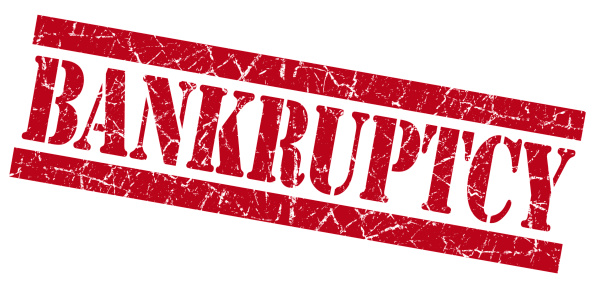The Pros and Cons of Filing Bankruptcy
Deciding whether or not to file for bankruptcy protection from your creditors is seldom easy. It is a choice that you should only make after a lot of careful thought and consideration, plus a consultation with a bankruptcy attorney for good measure.
If I’ve said the following once I’ve said it a million times, bankruptcy isn’t always the worst choice but it should probably be your last choice. In fact, for some people bankruptcy is absolutely the right choice. For others, it may be a bad idea. If you are currently weighing out the pros and cons of bankruptcy, here are a few factors you might want to consider.
Pros
- Protection from Creditors
Arguably the biggest benefit you can receive from filing bankruptcy is legal protection from your creditors. Bankruptcy may be able protect you from lawsuits, foreclosure, collections, wage garnishment, and a host of other financial problems.
- Not a Life Sentence
It will take some time for your credit reports and scores to fully recover after filing bankruptcy, 7 to 10 years to be exact. It is also worth noting that after a bankruptcy it can be a bit tricky to qualify for certain types of financing, especially mortgages, in the short term. However, the notion that you are doomed to a lifetime of poor credit after filing bankruptcy is, thankfully, incorrect.
It is actually possible to begin rebuilding your credit rather quickly after a bankruptcy. Secured credit cards, a credit builder loan at your local credit union, or having a loved one add you onto an existing (and well managed) credit card account can all be positive steps toward rebuilding your credit after bankruptcy.
Cons
- Harm to Your Credit
It is no secret that bankruptcy can damage your credit reports and scores. What you may not realize, however, is that it can damage your credit in more than one way. When you file for bankruptcy a record of the filing is generally added to your credit reports. Additionally, each individual account/debt you included in the bankruptcy will have a “bankruptcy” notation added as well. Because of the unique way that bankruptcy can appear on multiple areas of your credit reports, it has the potential to inflict severe credit score harm.
- Long Term Credit Damage
Not only can bankruptcy severely harm your credit, it has the potential to do so for a long time. A lot of people incorrectly assume that once a bankruptcy is discharged it will be removed from their credit reports. However, the Fair Credit Reporting Act allows for a Chapter 7 bankruptcy to remain on your credit reports for up to 10 years from the date filed. Chapter 13 bankruptcy is allowed to remain on your credit reports for up to 7 years from the date of discharge or up to 10 years from the date filed – whichever comes first. As long as the bankruptcy remains on your credit reports it can have a negative impact on your credit scores, though the impact does lessen with time.
- Bankruptcy Doesn’t Eliminate Everything
Whether you qualify to file a Chapter 7 bankruptcy or whether you are considering filing a Chapter 13 bankruptcy, there may be some debts where bankruptcy can’t help you. While credit card debt, medical debt, judgments, and a slew of other debts are generally eligible to be included in your bankruptcy, others may not be. Here are a few of the types of debts which you most likely will not be able to include in your bankruptcy.
- Student Loans and Income Taxes (Except under extraordinary circumstances)
- Government Fines and Penalties
- Child Support and Alimony
- Condominium and HOA Fees
- Debts You Established Fraudulently
Decision Time
Filing bankruptcy has consequences, but so does the decision to stop paying your bills because you can no longer afford them. And one last time, bankruptcy should probably be your last resort, but it is not necessarily the worst option either.

